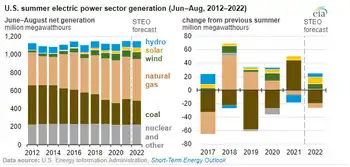Enron exec pleaded guilty to avoid prison, defense says
HOUSTON, TEXAS - A former Enron executive pleaded guilty and gave error-filled testimony against his former boss mainly to avoid a long prison sentence, a defense lawyer in the trial of Enron's top executives argued recently.
Kenneth Rice was well aware he faced over 100 years in prison if he didn't cooperate with the government, the defense said as it questioned Enron's former broadband chief.
"You knew that the only way to avoid life in prison was to cooperate?" asked Mark Holscher, a lawyer for former Enron CEO Jeffrey Skilling who is standing trial on charges of fraud and conspiracy alongside former CEO Kenneth Lay.
Rice denied that, but faced more pointed questions on his motivations for striking a plea deal with the government.
Rice was aware a young executive at Dynegy Inc. had been sentenced to 24 years for his role in a similar accounting scandal, the defense said.
But Dynegy executives who cooperated with regulators received sentences of not more than 13 months, Holscher said.
"I knew from the day I got indicted that I was looking at a lot of time and the Dynegy sentencing reinforced it," said Rice, who now faces a maximum of 10 years in prison.
The painstakingly detailed cross-examination of Rice comes after he offered scathing testimony against Skilling, his friend for over a decade.
Both Skilling and Lay - once among Houston's most powerful men - are now fighting to prove their innocence in the scandal that brought down the energy trader, costing thousands of employees their jobs and many more their life savings.
The men have blamed Enron's former chief financial officer, Andrew Fastow, for any crimes at the company, which they claim triggered a crisis that led to its bankruptcy in late 2001.
In some of the most direct testimony so far implicating Skilling in the scandal, Rice told jurors his former boss insisted executives paint a glowing picture of Enron's broadband business and stick to false earnings goals.
As Rice took the stand for a second day, the defense tried to punch holes in that testimony and attack the credibility of the man known within Enron for his love of sports cars and an extra-marital affair with a colleague.
In a previous trial Rice testified that Skilling presented a video containing false information during an analyst meeting, but the video was never shown to analysts, the defense said.
Rice even mischaracterized the type of boat former Skilling wanted to sail around the world in after leaving Enron, the defense said.
Skilling planned to sail in a ship-like boat that could hold cars and even a helicopter, Rice had testified.
That gave the impression Skilling wanted a luxury boat to sail to the south of France, rather than the ugly trawler he joked about, the defense argued.
"I will clarify it was not going to be a fancy, luxury boat, it was an industrial-strength ship," Rice conceded.
Related News

Iran Says Deals to Rehabilitate, Develop Iraq Power Grid Finalized
TEHRAN - Iran and Iraq have finalized two deals to rehabilitate and develop the power grid of Iraq, IRNA cited the Iranian Energy Minister Reza Ardakanian.
Ardakanian met his Iraqi counterpart Majid Mahdi Hantoush in Tehran on Tuesday evening on the sidelines of Prime Minister Mustafa al-Kadhimi’s trip to the Islamic Republic on his first foreign visit.
“It was decided that the contracts related to reducing losses on the electricity distribution network in the provinces of Karbala and Najaf, as well as the contract for repairing Iraq’s distribution transformers would be finalized and signed,” the Iranian minister said.
Iraq relies on Iran for…




